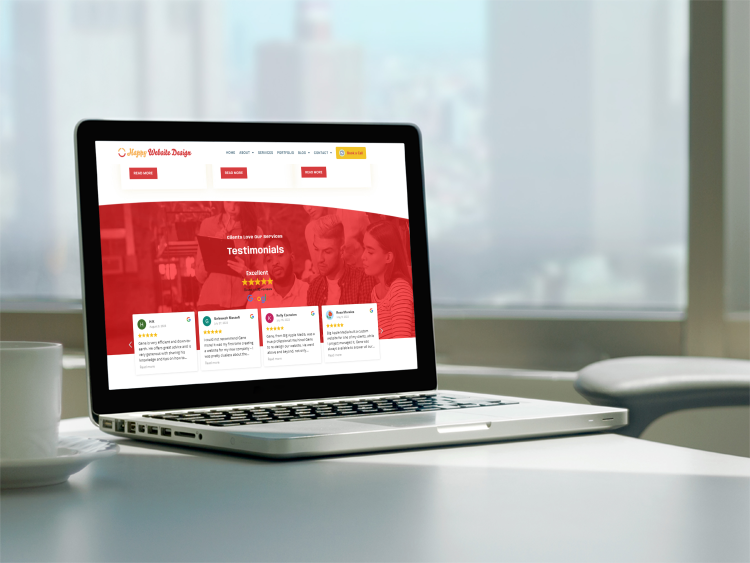Why Holistic Internet Style Is the Key to a Smooth Individual Experience
In today's digital landscape, the relevance of all natural internet design can not be overstated, as it elaborately weaves with each other aesthetics, functionality, and capability to develop a seamless individual experience. By embracing a thorough technique that prioritizes user demands and leverages responses, developers can boost the overall communication with their systems.
Comprehending All Natural Web Design
Alternative website design includes an extensive technique that takes into consideration every facet of the customer experience. This methodology integrates different elements, including visual appeals, capability, web content, and use, to develop a smooth interaction between the individual and the digital platform. By focusing on the individual's journey, all natural layout looks for to align the internet site's structure and web content with the requirements and expectations of its target audience.

In addition, the assimilation of responsive layout principles is vital in accommodating various devices and screen dimensions, further enhancing the individual experience. By recognizing the interconnectedness of these elements, designers can produce web sites that not just draw in but likewise keep users, ultimately driving engagement and conversions. All natural website design is, consequently, a critical technique that promotes a purposeful partnership between users and electronic areas, leading the way for lasting on the internet success.

Secret Components of Holistic Design
A successful alternative layout approach integrates numerous crucial elements that work in consistency to boost user experience. One such component is user-centered design, which highlights understanding customers' demands, choices, and habits. web design consulting services. By conducting extensive study and usability testing, designers can develop tailored solutions that resonate with the target audience
One more essential element is consistency in visual and practical elements throughout the website. This involves maintaining a cohesive shade palette, typography, and design, which assists individuals navigate the site without effort. In addition, receptive layout is crucial, ensuring that the website carries out optimally throughout various devices and screen dimensions.

Availability is additionally an important element of alternative design. By sticking to access standards, designers can develop inclusive experiences that satisfy varied customer teams, including those with impairments. Furthermore, the assimilation of web content approach makes sure that important information exists clearly and succinctly, improving comprehension and involvement.

Benefits of a Seamless Experience
Creating a seamless user experience offers numerous benefits that significantly enhance overall complete satisfaction and engagement. At its core, a smooth experience cultivates a feeling of simplicity and intuitiveness, allowing individuals to browse a web site or application effortlessly. This reduction in rubbing not only increases the possibility of users returning yet likewise enhances their desire to suggest the platform to others.
Moreover, a smooth experience results in improved conversion rates. When users discover what they need with marginal effort, they are a lot more inclined to finish preferred actions, such as making an acquisition or signing up for an e-newsletter. This performance converts into greater client retention, as pleased individuals are most likely to end up being faithful advocates for the brand name.
Additionally, a natural and seamless user interface reduces cognitive lots, enabling customers to focus on material instead than fighting with navigating or design incongruities (web design consulting services). This clearness not only improves customer fulfillment yet also enhances brand reputation. Eventually, prioritizing a seamless customer experience leads to a competitive advantage, as companies that purchase this element are much better placed to fulfill the advancing assumptions of their audience and drive lasting success
Carrying Out Alternative Techniques
To achieve a truly smooth user experience, companies need to adopt holistic approaches that think about every aspect of layout and functionality. This strategy starts with a combined vision that straightens employee across various self-controls, including UX/UI layout, material growth, and technical execution. Effective partnership fosters a common understanding of individual needs and goals, enabling more coherent layout options.
Following, it is vital to create individual personalities and trip maps that reflect the varied demographics and behaviors of the target market. By feeling sorry for customers' point of views, companies can anticipate difficulties and streamline interactions throughout the digital experience.
Additionally, constant branding and messaging need to permeate every touchpoint, guaranteeing a well-known and reliable presence that boosts customer engagement. Integrating responsive style concepts is additionally essential, as individuals currently connect with web content throughout several gadgets.
In addition, organizations ought to prioritize access, ensuring that all users, despite capability, can navigate and take advantage of their electronic offerings. By embedding these holistic strategies into the design process, organizations can create a cohesive and satisfying individual experience that promotes fulfillment and commitment.
Determining Customer Experience Success
While attaining an all natural strategy to internet layout is crucial, gauging user experience success is equally important to ensure that design approaches properly fulfill customer demands. This needs a combination of qualitative and quantitative metrics to gain a thorough understanding Check This Out of customer communications and fulfillment levels.
Key efficiency signs (KPIs) such as individual engagement, conversion rates, and bounce visit site prices supply important quantitative understandings. A high conversion price might show that customers find the style instinctive and engaging. Alternatively, raised bounce prices can signal that customers are discontented or confused, demanding a reevaluation of the layout aspects.
Qualitative steps, consisting of individual feedback, surveys, and functionality screening, are important for acquiring deeper understandings right into the individual experience. Analyzing customer comments can expose discomfort points and locations for improvement, while usability examinations allow designers to observe real-time communications and identify challenges users face.
Eventually, the assimilation of these measurement methods allows for constant improvement of website design, ensuring it stays user-centered and reliable in delivering a seamless experience. Routinely taking another look at these metrics will allow developers to adjust to developing individual needs and choices, solidifying the general success of a holistic web design method.
Conclusion
In conclusion, holistic website design arises as a fundamental method to achieving a seamless customer experience. By incorporating visual appeals, functionality, and usability, this layout ideology addresses varied customer demands and choices. official site The concentrate on user-centered strategies not just boosts navigation and fulfillment yet likewise fosters brand name reputation and access. Eventually, the application of alternative design concepts substantially adds to boosted conversion prices and client retention, establishing a durable framework for effective electronic interactions.